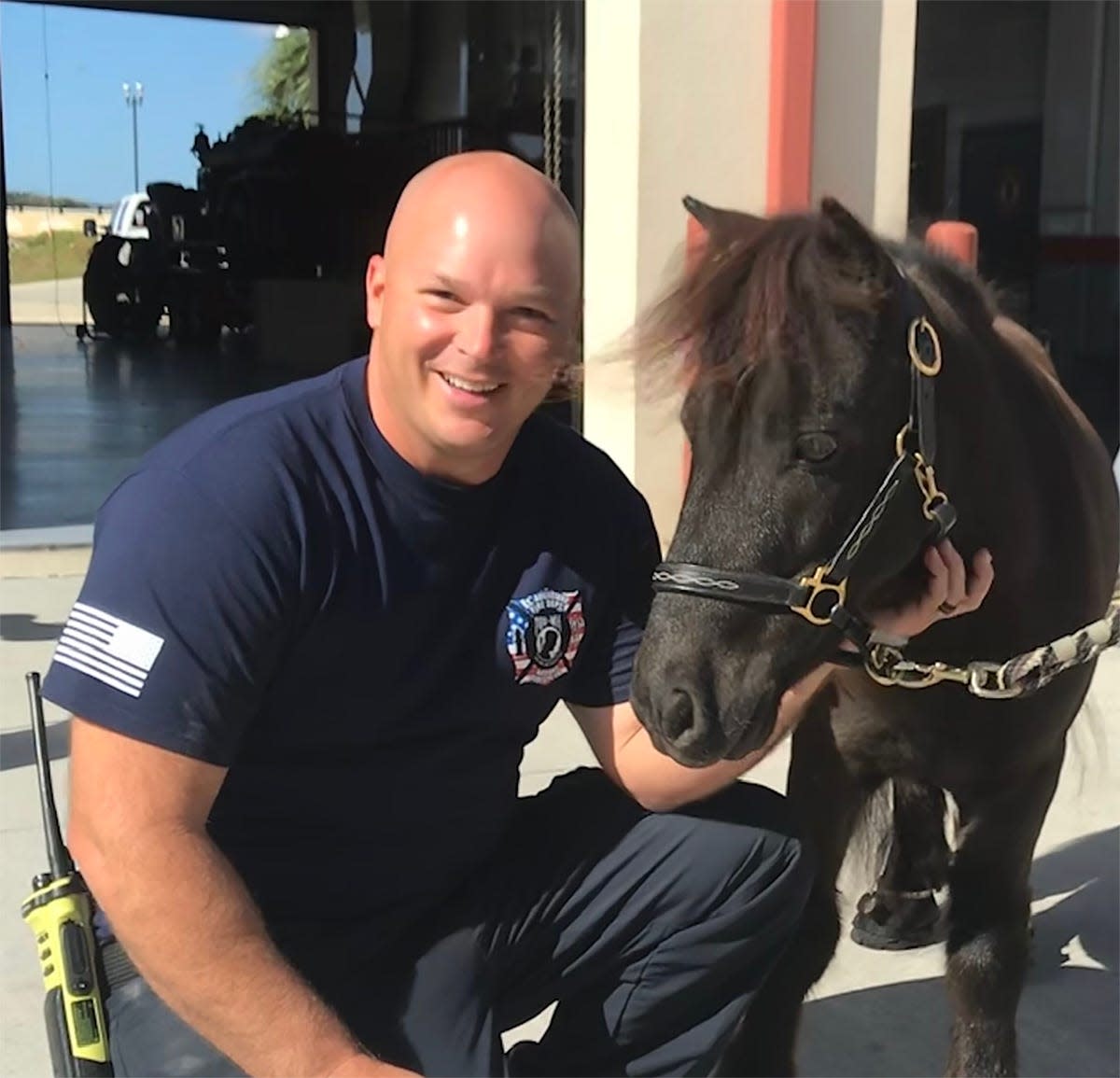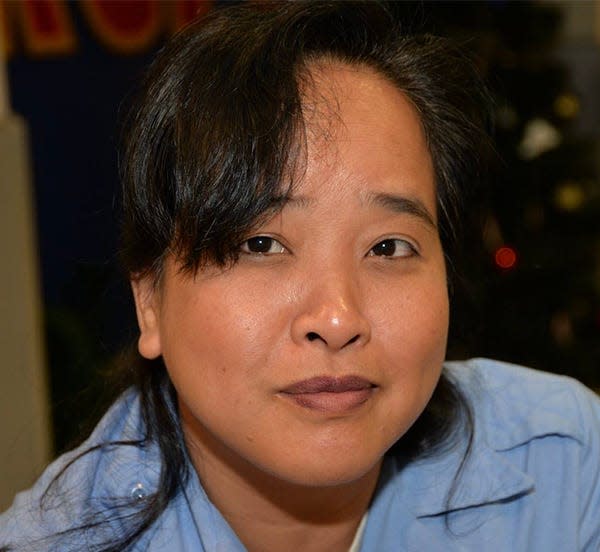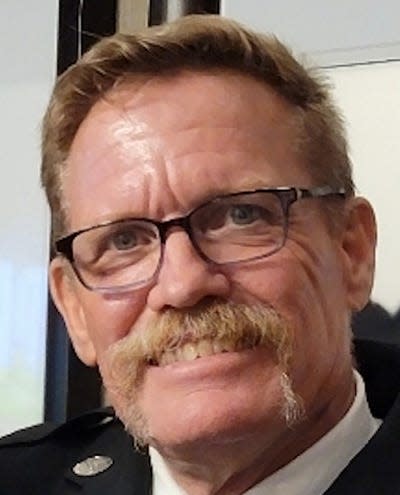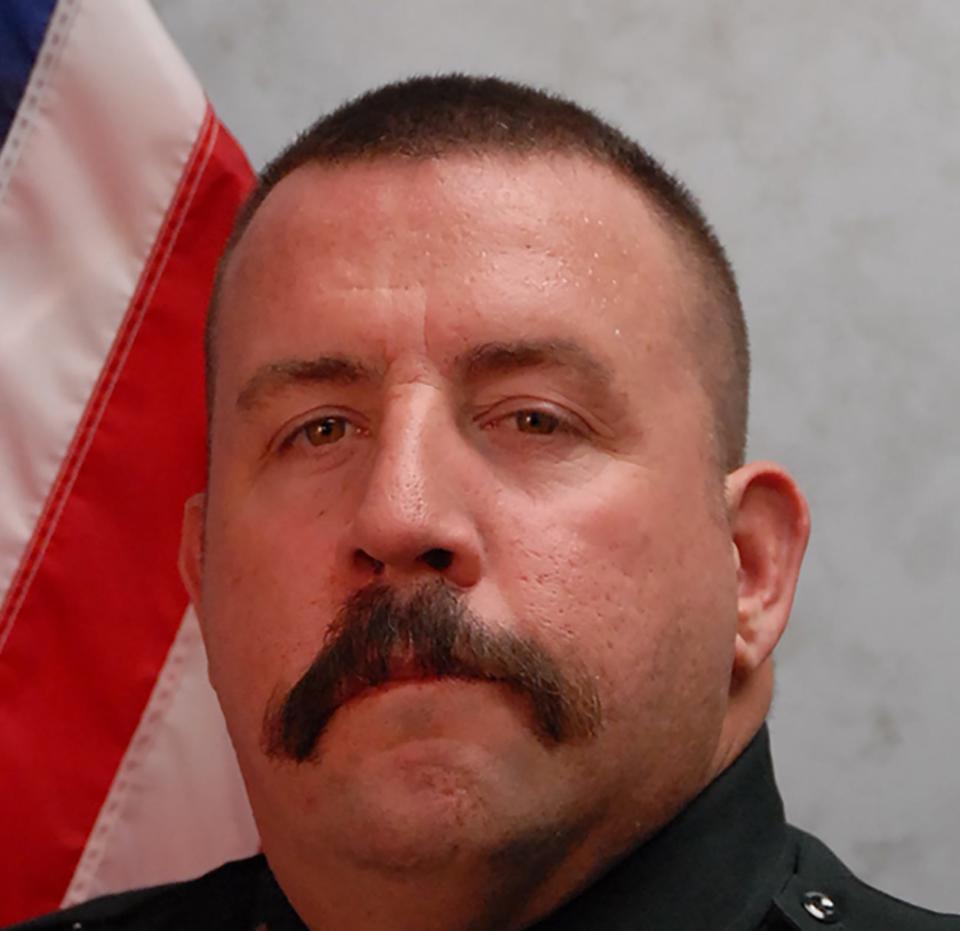'Been there, done that': First responders provide support for struggling Jacksonville-area colleagues

For Chris Pacetti, the tipping point came about seven years ago when he was part of a St. Augustine Fire Department team responding to a medical emergency call.
To his horror, the patient was a close friend.
"We fought to get her back, but we failed. Not saving Alex peeled away the scab that covered all of the sights, sounds, screams and smells of all those calls before hers," Pacetti, at the time a first responder for 15 years, said. "The things I thought I was tough enough to block out or bury deep inside were all exposed. The next few years were filled with sleepless nights, depression, crying alone for hours and relying on alcohol to numb the pain."
Then came the night his wife told him she was "scared to lose me to suicide," he said.
Work strains: First responders' job stress focus of mental health campaign involving Jacksonville groups
Guest column: Community steps up commitment to mental health crisis
Only after he reached out to colleagues did he find out his experience was not isolated. He began talking with a peer counselor. Without taking that step, he might not still be alive, he said.
"I wasn’t safe inside my own mind, which is a terrifying place to be," said Pacetti, now 41 and a deputy chief with the St. Augustine department.

Jacksonville-based LSF Health Systems is spearheading a new First Responder Peer Support Program across 20 counties in Northeast and Northern Central Florida. Trained peer specialists, who are current or former first responders or members of the military, provide confidential and free support to first responders and their family members.
Such peer counseling can work for first responders in crisis when other approaches fail, according to Dr. Christine Cauffield, CEO of the nonprofit.
"Peer support allows our first responders to speak to someone who simply 'gets it,'" she said. "Oftentimes we just need to talk to someone who understands where we are, where we’ve been and where we want to go. Through that connection, first responders are more likely to feel more comfortable opening up and sharing their issues."
The pilot program is funded by a $1.8 million, one-year grant from the state Department of Children and Families. LSF plans to search for additional funding to continue the program.
"We want to break down the stigma surrounding mental health … that still exists and is particularly insidious in fire stations, police departments, among the emergency medical services community and also inside emergency telecommunication/dispatch offices," she said.
First responders are more likely to die by suicide than in the line of duty, according to the U.S. Centers for Disease Prevention and Control.
"Sources of stress for emergency responders may include witnessing human suffering, risk of personal harm, intense workloads, life-and-death decisions and separation from family," according to the CDC. "Stress prevention and management is critical for responders to stay well and to continue to help in the situation. … To take care of others, responders must be feeling well and thinking clearly."
Symptoms of such traumatic stress can include confusion, nightmares, disorientation, memory problems, fatigue, headaches, pains, anxiety, guilt, denial, emotional outburst and behavioral changes, according to the CDC.
Peers are using their struggles to help colleagues
Thinh "Ting" Rappa, 49, is a newly hired peer support specialist for the LSF program. An area firefighter/EMT, she has experienced post-traumatic stress disorder while on the job and wants to use her experience to help others.
"It's impacted my life at home and at work. I didn't want to talk to anyone. I didn't want to go to work and I had to take a leave of absence to get help," she said. "I was constantly crying and had a feeling of hopelessness. It was one of the darkest days I've ever experienced and I couldn't find my way out and I consider myself pretty level-headed."

Rappa and other first responders interviewed for this article — aside from Pacetti — asked that their respective departments not be identified because they are speaking as individuals, not on behalf of their departments.
She has a few words for people who don't believe PTSD is a "real thing."
"It's not just in our heads and we can't just get over it," she said. "Most people won't understand it until they have gone through it or had a loved one go through it. It's not something physical you can see, so therefore most people don't think it's real then."
'Minutes equal lives':Westside Jacksonville is getting 'desperately needed' fire station
What does it take to answer the call?: Jacksonville seeks 911 communications officers
Initially no help seemed to be available. She worked for a small department, and its peer support team was not trained in PTSD.
"It was a dead end everywhere I turned. It was really depressing," she said. "My entire crew missed all the signs and failed to help me. When I told a fire chief I was 'broken' and I didn't know what was wrong, he told me it was all in my head and that I wasn't broken. Nobody could help or maybe didn't want to help me because they didn't know how to."
Rappa is still recovering. She has good and bad days. She has relapse days when something — she's not always sure what — triggers a reaction, she said. Still, she knew she could provide valuable relatability for the peer support program.
"I consider myself a strong person and I struggled with this. If I struggled, I know others are too. If I can help or ease one person's fear, I would be happy," she said. "That's why I became a firefighter, to help others. This gives me the chance to turn those dead ends into something useful and help find people the help they need."
Talking, sharing, working together
Max Schafer, 56, a fire engineer in Northeast Florida for 31 years, is a peer support specialist within his department. Because early in his career he battled alcoholism, he realized the need for peer support among first responders.
"It is a positive experience to be able to help other firefighters," he said. "Typically when you show up to work with a group of firefighters [in peer support], they will be very standoffish and not interested in talking, but after a period of time you see them relax and begin to open up and start sharing. After completing the session you can see a change in their demeanor and body language."

Peer support hinges on the "shared experiences that they can relate to," as well as the shared language and dark humor many first responders use as a coping mechanism, he said.
The peer support team spreads the word about their service through interdepartmental postings and the union. Also, they visit stations for mental health discussions and to let first responders and their families know how to get help. And they speak to new recruits and their families about how to handle on-the-job stressors.
Andy Scott, 51, is a sergeant at a Northeast Florida sheriff's department. Peer support, he said, helped him through a divorce, traumatic service calls and internal work issues. A 28-year first responder veteran, he pays it forward as the Crisis Intervention and Stress Management Team Leader for his department.

"Peer support has helped me by providing me with a person and place to talk and confide in people who have been trained and have 'been there done that,'" he said. "Because we work together, see the same things … [we] can utilize our experiences and training to help each other."
First responders often are the first to see PTSD and other crises beginning in colleagues.
"We detect it, however, we are slow to respond to it because people do not want to be labeled," Scott said. "We can help others see it by taking the stigma away, allowing people to receive the diagnosis and helping to overcome it without any dire issues."
bcravey@jacksonville.com, (904) 359-4109
FIRST RESPONDER PEER SUPPORT PROGRAM
For more information go to lsfhealthsystems.org/first-responders.
This article originally appeared on Florida Times-Union: Jacksonville-area first responders help each other cope with trauma

